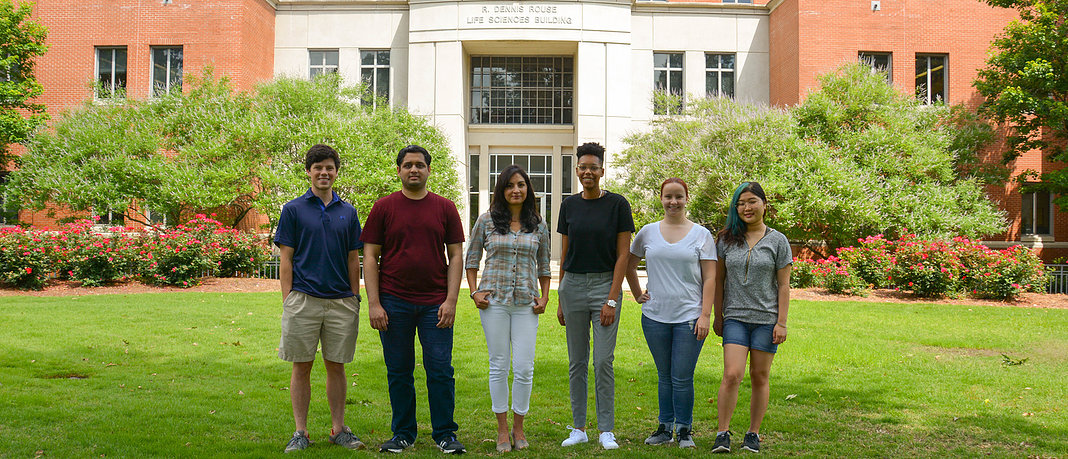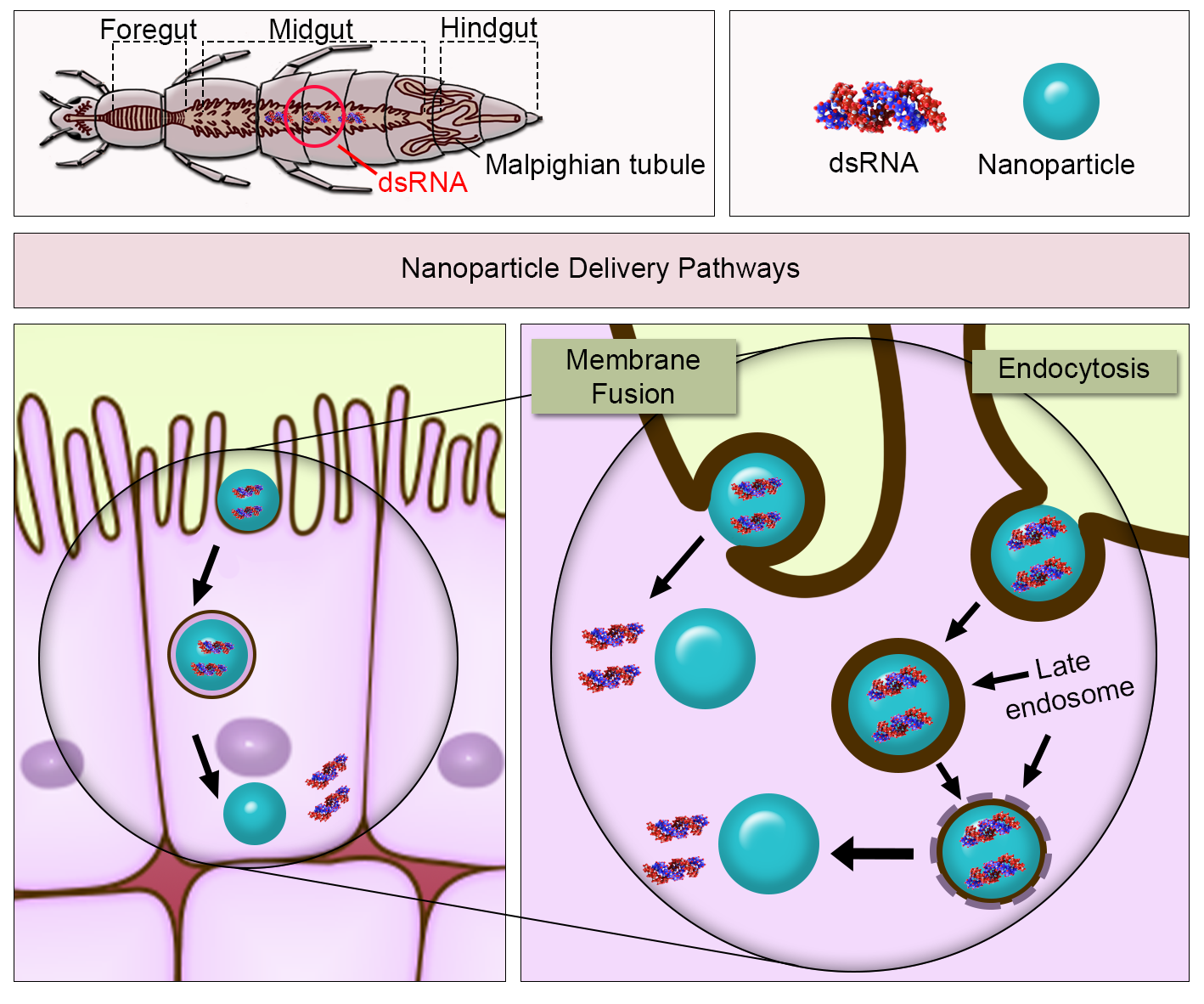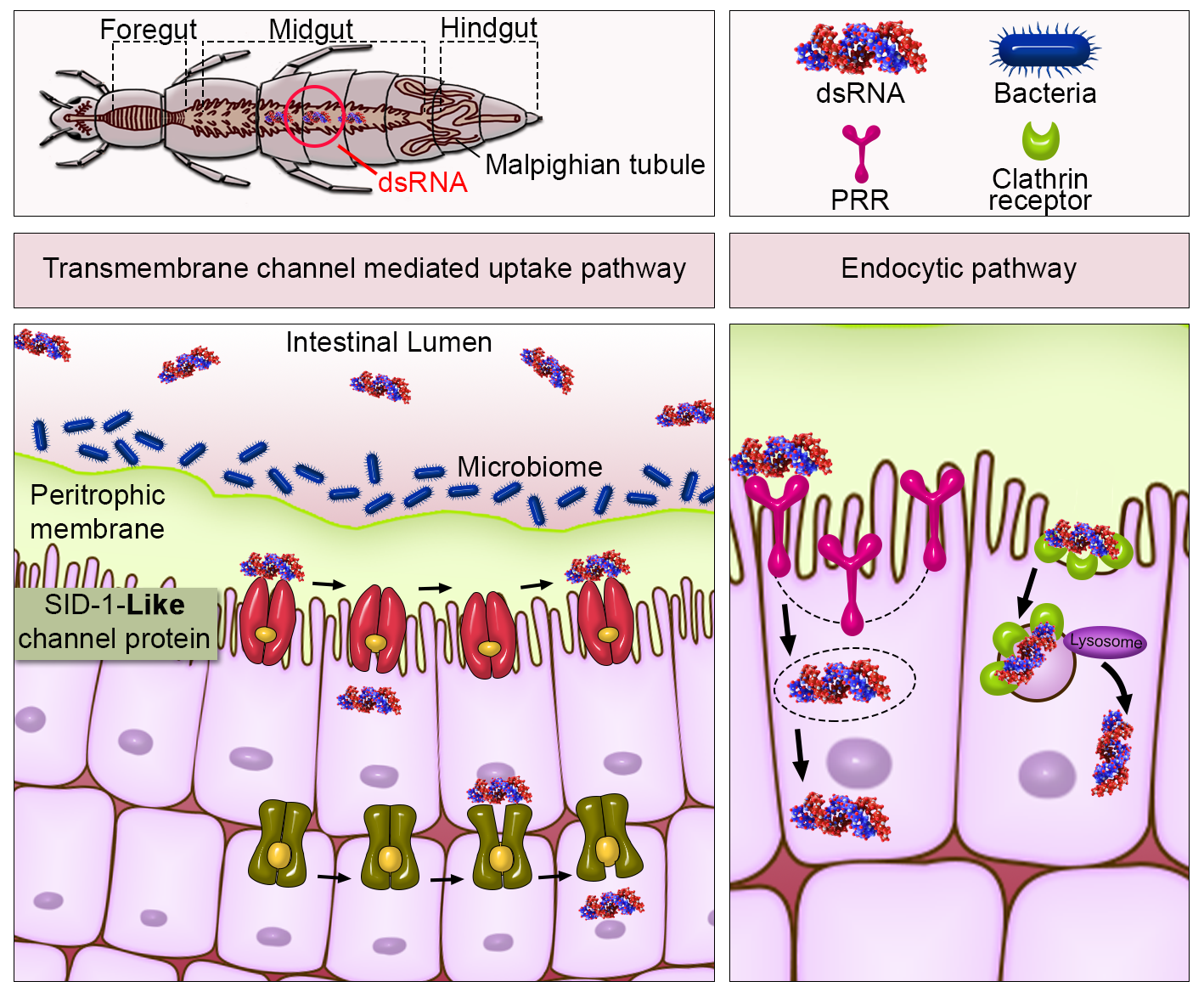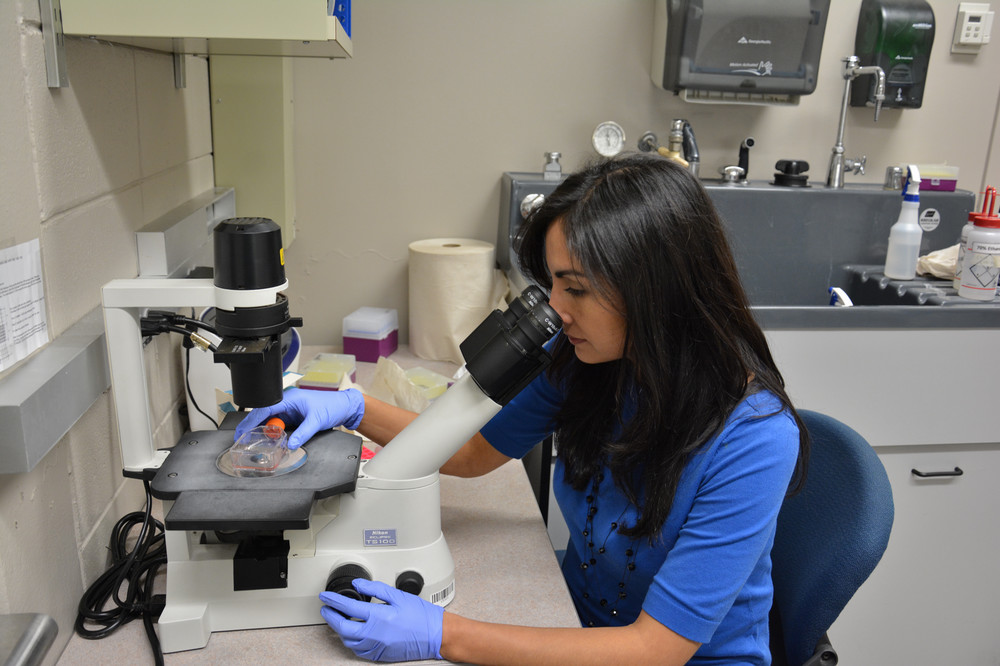COSAM News Articles 2024 01 COSAM’s Avila-Flores propels research with prestigious $630K NSF CAREER Award for more targetable and biodegradable tool for pest management
COSAM’s Avila-Flores propels research with prestigious $630K NSF CAREER Award for more targetable and biodegradable tool for pest management
Adriana Avila-Flores, associate professor and the Undergraduate Program Officer in the Department of Biological Sciences, is the recipient of a five-year National Science Foundation (NSF) CAREER award for $630,000. Her research project “Branched Amphiphilic Peptide Capsules (BAPCs) for the delivery of lethal dsRNA into invasive organisms” is the result of more than seven years of dedicated work.
Imagine if you could target a specific insect in your garden or in the agricultural production of crops. If you could easily apply a substance that would stop only that destructive insect yet would be safe for pollinators in the same area, it would then reduce losses while keeping beneficial insects prosperous.
As a postdoctoral researcher, Avila-Flores attended an entomology seminar that sparked her interest. She knew she had the tools to provide a solution to the pest problem discussed, but there was skepticism about the possibility of this idea.
Avila-Flores diligently worked on her research that contains double-stranded RNA (dsRNA) that targets messenger RNA (mRNA).
“It inhibits the production of vital proteins inside of the insect,” said Avila-Flores. “That results in the elimination of the insect with less impact to the environment.”
The BAPCs and the dsRNA are combined so that the target pest, such as an aphid, consumes it. Once it is eaten by the insect, the dsRNA will not allow the insect’s own mRNA to produce proteins, stopping it from functioning—eliminating the pesky garden/crop bug.
BAPCs are nanomaterials that work in sync with the dsRNA to increase the overall effectiveness of this biopesticide.
An integral component of the NSF CAREER Award is the commitment to outreach.
“I want to reach out to rural schools to help diverse students that do not have access to a lot of technology,” she said. “These students will be able to get hands-on experience testing this research on tomato plants and the dreaded Tobacco Hornworm Moth or Manduca sexta.
In her lab, the Avila-Flores Research Group, she will have two graduate and three undergraduate students working on this project.
“I am seeking to understand how we can make this tool bio-compatible and understand why some insects are more resilient than others to this technology,” said Avila-Flores.
She shares with the students she mentors the importance of perseverance she demonstrated with this award process.
“I applied for this NSF CAREER Award a few times,” she said. “It is important to share this with students because you want them to see that you cannot give up. You must continue to work on your research and keep reaching for your goals.”
She also shares the need to look at interdisciplinary research and see where you can apply your skills to find scientific solutions.
“My research is the result of me looking at a problem in a completely different field and having the strength and determination to apply areas of science to make a difference and help the environment,” said Avila-Flores.
The NSF CAREER Award is funded through the Division of Material Research Direct for Mathematics and Physical Science. It also includes co-funding through the Biomaterials Program and the Established Program to Stimulate Competitive Research (EPSCoR).
Latest Headlines
-
07/09/2024
-
Summer Bridge Program celebrates 21 incoming Auburn students as they prepare for future STEM careers07/02/2024
-
07/02/2024
-
06/17/2024
-
06/07/2024





